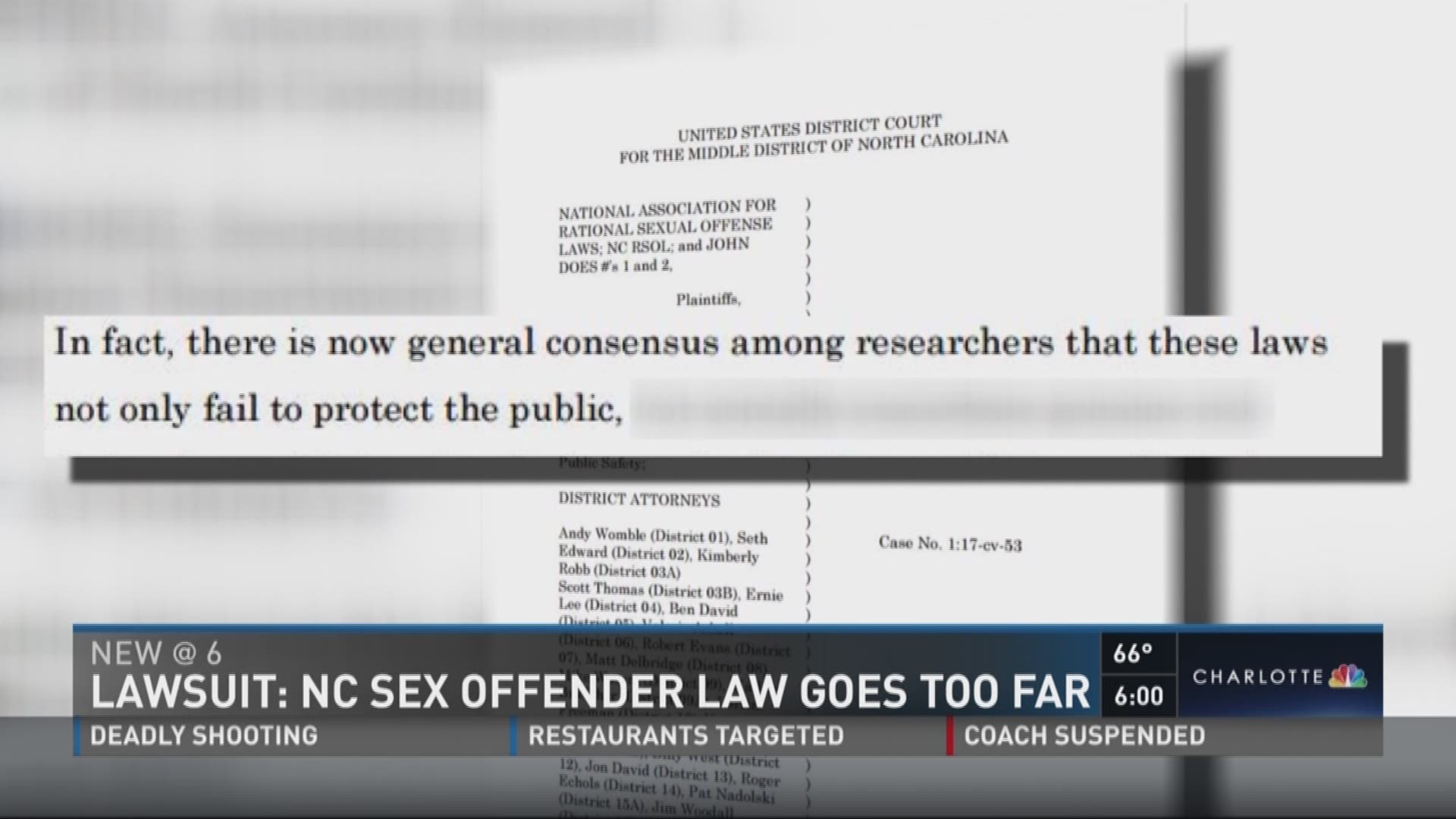CHARLOTTE, N.C. -- A recently-filed federal lawsuit aims to loosen the restrictions placed on registered sex offenders in North Carolina, claiming the state’s laws go too far, and do little to actually make children safer.
The National Association for Rational Sexual Offense Laws filed the federal civil rights action, challenging North Carolina’s sex offender registration requirements.
The organization and two unnamed plaintiffs allege that the restrictions placed on sex offenders have expanded continuously over the past decade and are now crippling.
North Carolina’s laws restrict where a convicted sex offender can live, work, play or worship.
“The time has come to confront these laws more aggressively,” says Robin Vanderwall, president of the North Carolina chapter of NARSOL. “They simply do not protect the public. The research is clear that laws such as North Carolina’s actually increase the danger to the public by preventing people from effectively reintegrating into society.”
North Carolina often requires offenders to remain on the registry for life. The registry requirements also depict all sex offenders as a potential threat to children, regardless of the nature of the crime.
The lawsuit alleges that registered sex offenders are losing their constitutional rights under the guise of public safety.
Local defense attorneys say many sex offenders have trouble navigating all of the new requirements.
“There are aspects of the law that can be interpreted so narrowly and so strictly that it can be very, very difficult to comply,” says defense attorney Bill Powers, who works to help convicted sex offenders comply with the laws. “We've actually heard of instances of people who could not find a place to live and ended up homeless.”
Powers, who has no connection to the lawsuit, says he agrees a strict registry is necessary, but he believes the state will be safer with laws and guidelines that are clear enough to follow.
“I don't think you'll find many people who have sympathy for people on the registry,” Powers says. “The reality of the situation is, you want to make it possible for the person to comply with the law. If you make it impossible then you have a higher probability of someone not complying and losing track of them.”
A spokesperson for the State Attorney General says he will defend the law and "believes that protecting people from sex offenders is critically important to public safety".

